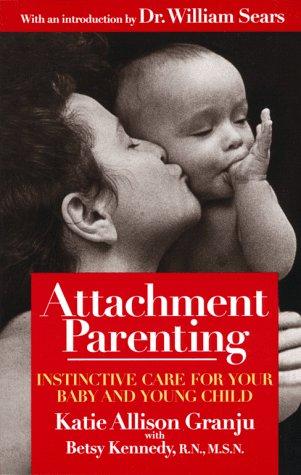 There is probably no topic that separates parents and contributes to mommy wars like sleep training. I've been pretty outspoken about my dislike of the cry it out approach in the past and really, I'm still not a fan.
There is probably no topic that separates parents and contributes to mommy wars like sleep training. I've been pretty outspoken about my dislike of the cry it out approach in the past and really, I'm still not a fan.That being said, I've had a bit of a change of heart these past few months--partly because I'm living in a less-than-ideal baby sleeping situation currently and partly because I realize that families are doing their very best and could use as much encouragement as possible. Also, I'm starting to realize that "cry it out" really does seem to be a "damned if you do and damned if you don't" sort of dilemma. As we've been facing our own sleep dilemmas, I've been doing a lot of reading and a lot of thinking. Thus far, here are the arguments for and against CIO that seem legitimate (in my mind).
For:
- CIO enables the baby or young child to learn the important skill of going to sleep unaided. Lack of this skill may result in years of parental involvement in aiding a child to go to sleep and/or issues with insomnia later in life.
- CIO often results in more sleep overall and more consolidated sleep as the child is able to return to sleep unaided. Lack of sleep and consolidated sleep has been linked to lower IQ scores, less empathy, behavioral problems, and ADHD.
- Parents are able to get the sleep they need to be understanding, empathetic, patient, and have fun with their children.
- CIO may weaken parent/child attachment, teach child that they cannot trust their parents and/or environment. This may result in less attachment promoting behaviors including less empathy and behavioral problems.
- CIO has been linked with brain damage, lower IQ scores, and ADHD.
- CIO may cause unhealthy fears of sleep and/or the dark.
- CIO may cause a parent to lose trust in their baby's cues and therefore be less understanding, empathetic, patient, etc.
Anyone else see a major dilemma here? Basically, if you CIO you're destroying your child's life and if you don't CIO you're destroying your child's life...and most of the evidence points to the exact same emotional/behavioral/societal problems. Blast.
Here's what I think deep down inside. I don't think there is any one right answer. There really is no way to quantitatively or qualitatively measure the affects of CIO, or lack thereof. However, there are a few well-established theories that most scientists and doctors agree on:
- Babies under 12 weeks of age cannot self-soothe (Weissbluth). Therefore, it would make sense that there could be some negative emotional/psychological/sociological affects of allowing a newborn to CIO.
- It is impossible to spoil a child in the first year of life (Erickson). (note: I'm not suggesting that parents should NOT sleep train in the first year of life. Just that there cannot be any "spoiling" if parents choose not to do so during the first 12 months).
- Accumulative sleep deprivation can be physically and mentally detrimental to both children and their parents.
Beyond these points, I feel that most points used to sell or protest the CIO approach to sleep training are purely conjecture. Whatever side of the fence you fall on probably has more to do with your personal preferences, beliefs, and intuition.
On that last point--intuition--I just want to make mention that because of my personal spiritual beliefs and faith, I feel that parents, and only the parents, can receive personal revelation for their child. Maybe this is a bit personal, but I feel that the choice to, not to, how, when, where to sleep train, is something that should be made a matter of intense thought and prayer. It's important for parents to know and study their options, make a decision that feels right based on their family's individual circumstances at that time, and then take the matter to the Lord. Only then parents will have confirmation from the only True Source as to the best course of action for their family. I feel that if this were the way that all parents went about making decisions for their families, then maybe all of the mommy wars on this subject could stop.

